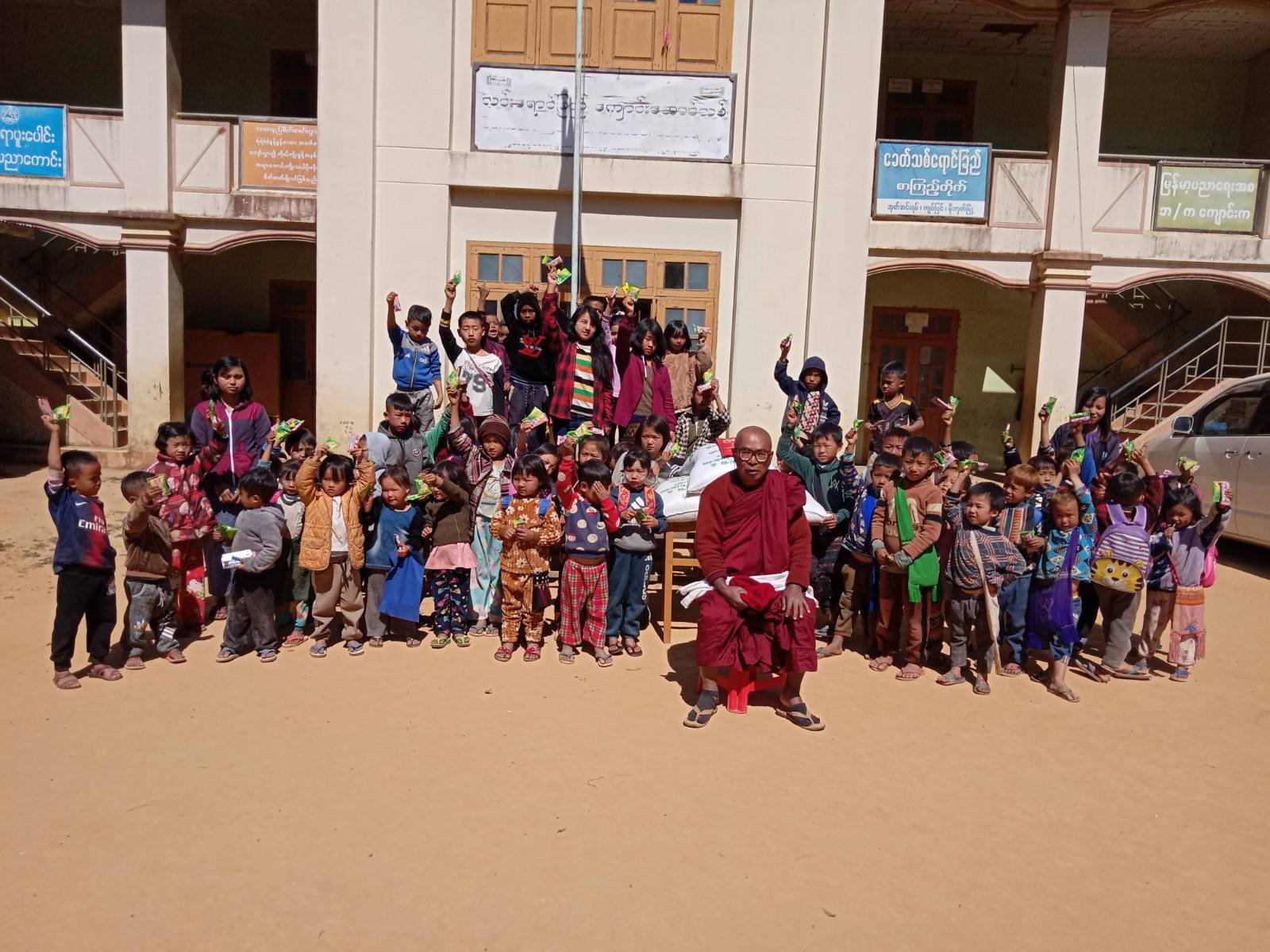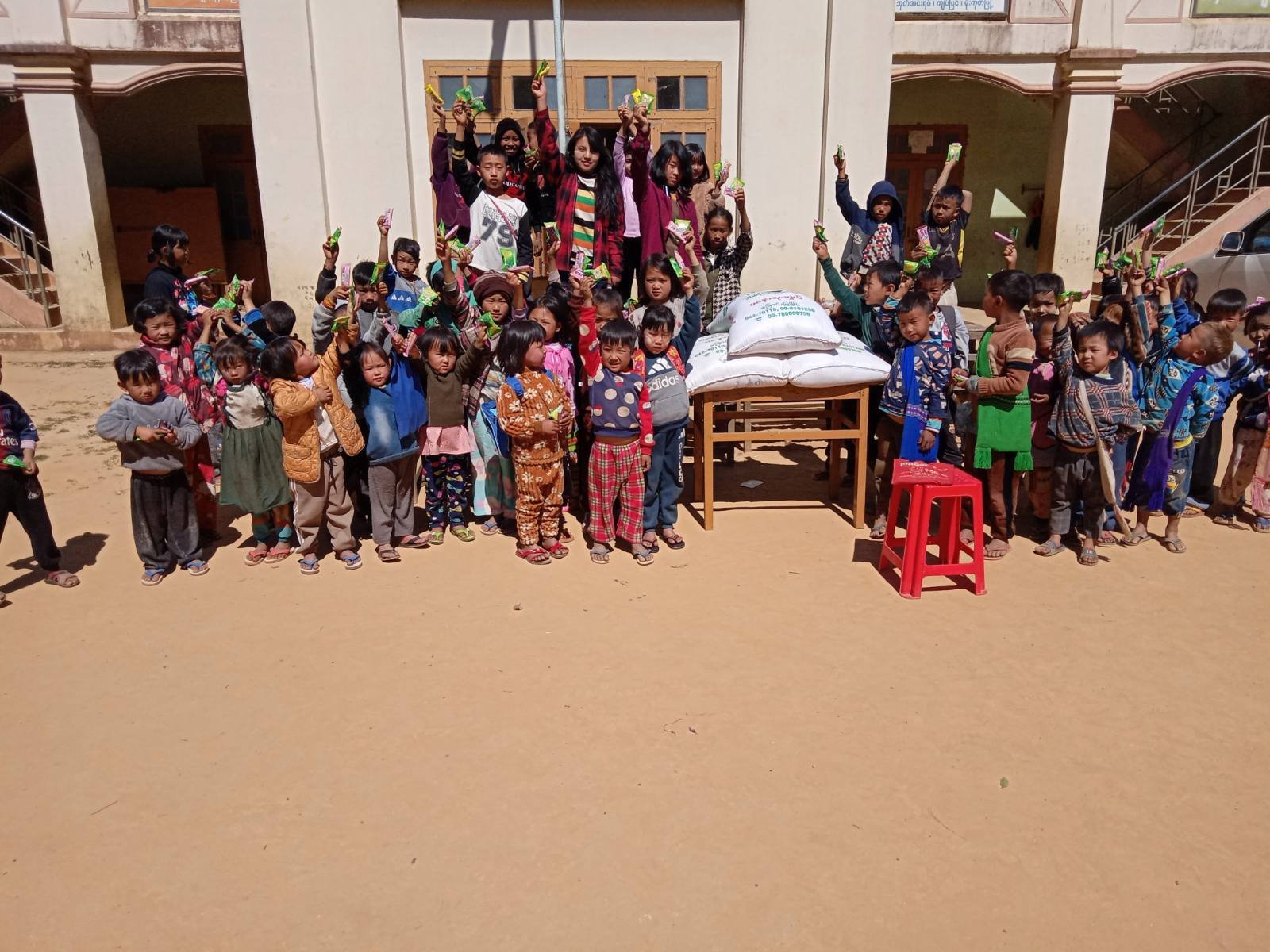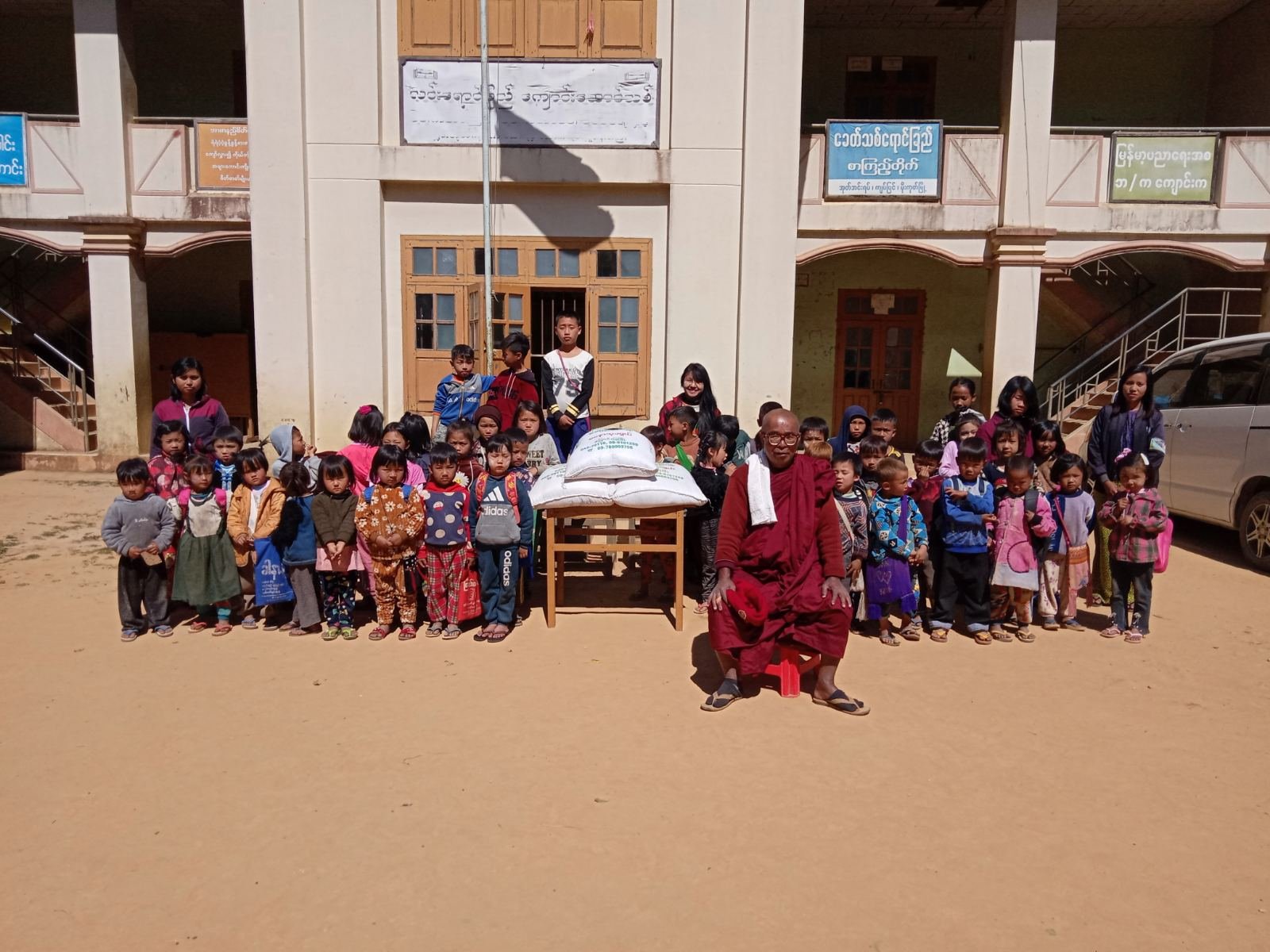Far and Wide: Your Dana reaches Mogok!
Sometimes it takes some time and effort to ensure that your donation funds end up exactly where we wish them to go. This was the case with the funds we allocated to two monastic schools in Mogok, a region famous for its precious gems, and which has been particularly difficult to access since the coup was launched. Over the course of the previous weeks, we ensured that the donation fund could support Buddhist novices trying to survive here, and our local volunteer teams had to coordinate carefully to avoid arrest by roaming bands of soldiers, many of whom are themselves undernourished and are able to continue their campaign of terror only by what they are able to confiscate and steal from the local population… and this especially includes those items intended for donation, even to monks. Thankfully, the story has a happy ending, as one of our local leaders relays below. Take a moment to read his account, and keep in mind that any further donations earmarked for monastic sties will continue to support this effort.
“Today, I have received the photos of our alms-rice donation to 2 monastic schools in Mogok which is located 200 kilometers north of Mandalay and bordering the Northern Shan State. And, I had a talk with [Redacted], a volunteer teacher of [Redacted] Monastic School, on the phone.
As many know, Mogok is well-known as "Ruby Land" of Myanmar for its famous rubies. Although it is rich in rubies, most local residents are poor and from different backgrounds and areas: most are different ethnicities from the Northern Shan State and some are from the mainland of Burma. According to the local volunteer who has helped out our monastic relief program, the monastic school where we reached out our relief aids, used to regularly have 360 boarding students before the pandemic. Now, it has only 60 boarding students and the schools have been closed. They are mostly ethnic children from remote underserved areas; they are from the families of poor mountain farmers and ruby mine workers who are working in hazardous worksites, etc. Some children are orphans whose parents were dead during the encounters between local ethnic militias and the notorious Myanmar military. Some children's parents died at the hazardous worksites on the spoil heaps which are the unaccountable manners or signs of the mining sites. These children are Pa-o, Palaung, Lisu, and Shan ethnicities from far and undeveloped areas in the Northern Shan State, such as Manton and Mong Hsu, etc. They are cared for and taught free education from Preschool through the matriculation grade, by the abbot of the monastery. While the school is closed at the moment, the children are taught Chinese and Computer Basics.
According to her, the monasteries which we helped, are the ones wherein each has the largest number of boarding students in Mogok. But there are 6 other monastic schools. When I asked her about the travel arrangements for our program, it is far and hard to reach some monastic schools. In the recent days, there were some armed encounters and she was required to turn off her phone during the travels. Also, the telephone connections and cellular Internet connections were frequently blocked. Even now, the cellular Internet networks are blocked and hence she had to go to her friend's house where the Wifi Internet is accessible, to send the photos to me. She apologised for the late reports of the progress that the transport of alms-rice sacks to the monastic schools took a long time as they faced encounters on the way. She expressed her gratitude on behalf of the monasteries because we asked her to contribute Shwe Bo Mano Thukha type of rice which has a good quality, for the children living there.
Anyway, she was happy to send me the photos today and asked me to pass the abbots' thanks to all donors.”









